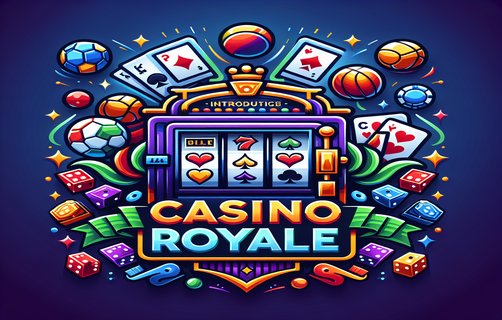Navigating the Digital Game Landscape: A Deep Dive into Leaderboards and Real-Time Interactions
डिजिटल गेम परिदृश्य का मार्गदर्शन: लीडरबोर्ड और वास्तविक-समय इंटरएक्शन में गहरा गोताखोर

In the realm of online gaming, the dynamics of competition and interaction govern player engagement and satisfaction. Among the critical components of this ecosystem are leaderboards, approved payout requests, deal-or-no-deal scenarios, bet adjustments, card deck regulations, and real-time chat action. Each of these elements plays a significant role in shaping the gaming experience, impacting not only gameplay but also player retention and community building.

**Leaderboards** serve as a focal point for competitive play, giving players a tangible way to measure their skills against others. The effectiveness of leaderboards rests on their ability to motivate players through recognition and reward systems. Top performers are celebrated, which incentivizes others to enhance their play. Yet, transparency in how scores are calculated is paramount; players must trust that the leaderboard reflects accurate performance metrics to maintain engagement.
Following closely are **approved payout requests**, which pertain to the financial integrity of online gambling and gaming. The process through which players request and receive payouts must be seamless and trustful. Players need assurance that their winnings are fair and that the payout process adheres to the regulatory standards set by governing bodies. This requires a robust framework where a dedicated team reviews and approves payouts, ensuring compliance with gaming regulations to promote a sense of security among players.
Next, we delve into **deal-or-no-deal scenarios**, an intriguing aspect of decision-making in gaming. These scenarios often add a layer of thrill and unpredictability, challenging players to weigh risks against potential rewards. They thrive on player psychology; the fear of losing a potential advantage can heighten emotional stakes. Analyzing how these scenarios affect player choices provides valuable insights into player strategies and motivations. Studying player behavior in such instances can inform better game design and enhance player experience through tailored risk management features.
**Bet adjustments** are another crucial facet of the gaming experience. They offer flexibility and can mitigate losses depending on how the game unfolds. However, designing a systematic approach to adjusting bets warrants a careful balance. Developers must ensure that these adjustments do not undermine the game's integrity while offering players control over their stakes. This balancing act is essential to maintain a fair and enjoyable gaming environment.
**Card deck regulations** play a vital role, particularly in card games, ensuring fairness and standardization. These regulations dictate how cards are shuffled, dealt, and played, preserving the integrity of games like poker and blackjack. By adhering to universally accepted regulations, operators can create a trustworthy environment where skill, luck, and strategy can flourish uninhibited by foul play.
Finally, **real-time chat action** facilitates communication among players, which enhances the social aspect of gaming. This feature allows players to strategize, taunt, or celebrate victories together, creating a cohesive community atmosphere. However, moderators must be in place to maintain a respectful environment, eliminating toxic behavior and ensuring that chat functions elevate rather than detract from the gaming environment.
In conclusion, each of these elements - leaderboards, payout requests, decision-making scenarios, bet adjustments, card deck regulations, and real-time chat - does not exist in isolation but rather interconnects to weave a rich tapestry of player experience. Analyzing and refining these components is essential to fostering a vibrant and fair gaming community where players thrive, innovate, and contribute to the game’s ecosystem.

comments